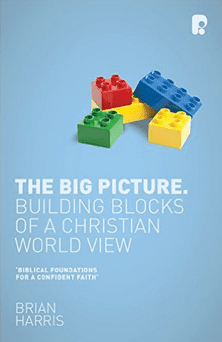If you say “predestination” you may well find the person you are talking to with a snarl. For some, perhaps most, the very idea that God, for whatever reason but God’s ways are God’s ways, chose some to be saved is objectionable if not unconscionable. And, yet, if you were to attend the lectures of many theologians in seminaries, at least those of a more traditional set of beliefs, you would hear Calvinism.
It’s right there that we encounter the problem: “Calvinism” also draws snarls, but many don’t understand either the complexity or diversity of Calvinism. That is why Ken Stewart’s, Ten Myths About Calvinism: Recovering the Breadth of the Reformed Tradition is of so much value to all of us today.
 Back now to predestination. In the 1559 edition of Calvin’s Calvin: Institutes of the Christian Religion (2 Volume Set) this is how Calvin expressed his now classic view:
Back now to predestination. In the 1559 edition of Calvin’s Calvin: Institutes of the Christian Religion (2 Volume Set) this is how Calvin expressed his now classic view:
We call predestination God’s eternal decree, by which he compacted with himself what he willed to become of each man. For all are not created in equal condition; rather eternal life is foreordained for some, eternal damnation for others. Therefore, as any man has been created to one or the other of these ends, we speak of him as predestined to life or to death.
That is called “double” or “dual” predestination. God predestined some to salvation and others to damnation.
How do you understand the Bible’s passages on election?
Here’s one such passage, from Ephesians 1: In him we were also chosen, having been predestined according to the plan of him who works out everything in conformity with the purpose of his will, 12 in order that we, who were the first to put our hope in Christ, might be for the praise of his glory.
There are some Calvinists today who believe a true Calvinist believes that very articulation of Calvin’s thoughts, and they also think those who don’t believe it that way are defectors or soft or worse than that.
But, Stewart’s chp articulates a wider perspective, and I make these observations:
1. Calvin’s earlier thinking was not this rigorous or extreme. Earlier ideas were more along the line of the church being elected to salvation, and in catechetical and church contexts Calvin was much less defined. But over time, and in response to critics, his ideas tightened into a strong belief in double predestination.
2. Calvin didn’t make this stuff up: Luther was a double predestinarian, and Zwingli was less so, but it goes back and back through the medievals to Augustine.
3. Perhaps more importantly, while it is clear that post-Luther Lutherans did not accept double predestination, among the Reformed there was an acceptance of predestination, some modifications of Calvin, and others (Bucer, William Perkins) who tightened up Calvin’s ideas into stronger formulations.
4. Jacob Arminius led more than 200 pastors out of the stronger predestinarian forms of Reformed theology into a belief in election that was rooted in what God knew about how sinners responded. So predestination is anchored in how humans respond.
5. Very importantly, over time Reformed confessions did not embrace Calvin’s strongest views. Evil became a divine “permission” (disconnecting God as far as possible from evil) and predestination was predestination “to life” but not also “to death.”
We could, of course, debate this topic until the cows come home, but I wonder if anyone thinks formulating disconnections from God and evil into “permission” etc, as Calvinists have said, or formulating predestination “to life” actually denies that said predestination is not simultaneously predestination “to death” (on the part of those who aren’t elected to life).
Noticeably absent, in my opinion, among the many criticisms of Rob Bell on the part of the NeoReformed crowd was much attention to election or predestination — Rob Bell is strong on free will, but I heard very few of his critics score him on that account, and I heard no one defend double predestination, which in many ways solves most — if not all — the problems Rob Bell is seeking to resolve.















